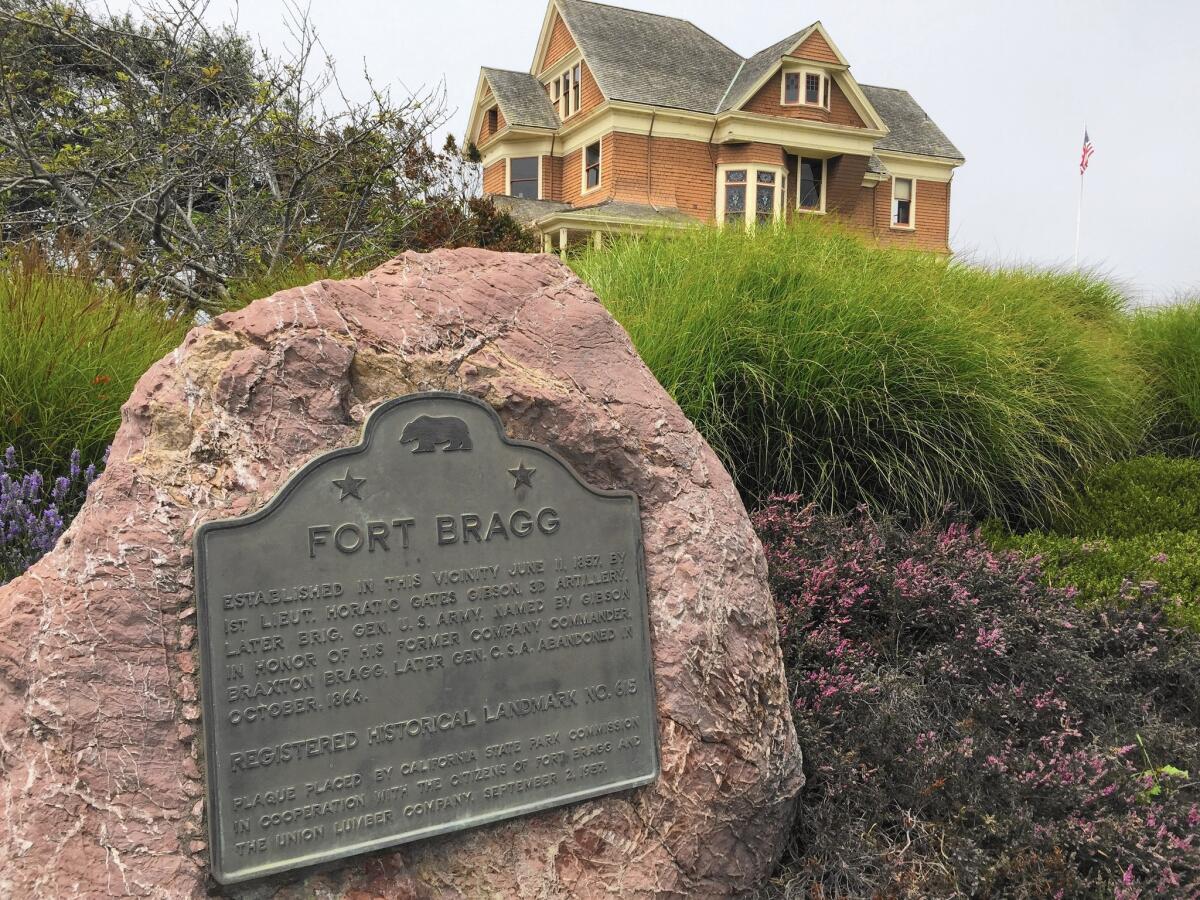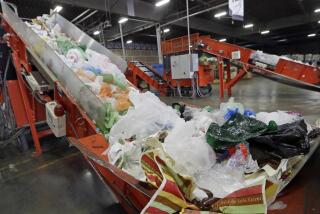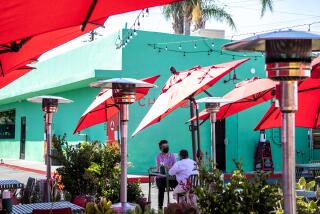Amid protests, drought rule requiring paper plates at restaurants lifted

In Fort Bragg, Calif., a water-saving measure required restaurants to use disposable plates, cups and flatware.
Amid criticism from local business owners and residents, the Fort Bragg, Calif., City Council on Tuesday lifted a requirement that had forced restaurants to save water by serving patrons with disposable plates, cups and flatware.
In a unanimous vote, the council approved a modified law that encourages (rather than requires) the use of compostable materials during the serious stages of the city’s drought emergency.
After hearing from about a dozen residents and business owners, council members expressed various concerns about the requirement. Some worried that buying paper plates and plastic utensils would cut too deeply into restaurants’ revenues. Others wondered whether targeting one industry was fair.
“I agree that one size doesn’t fit all,” Councilman Scott Deitz said, adding that it might be more equitable to force all businesses to cut their water usage by a certain percentage and let them decide how to do it.
Fort Bragg, a north coast city of about 7,300 residents, is among the areas struggling most with California’s ongoing drought.
The nearby Noyo River -- which provides the city with about 40% of its water this time of year -- has reached historic lows.
In late September, high tides sent salt water from the ocean toward the pumps that draw from the river. Because the flows were so low and weak, the salt water was able to enter the inlets and contaminate the river-water supply, rendering it useless for several days, officials said.
To cope, the city declared a Stage 3 water emergency, which put the restaurant rule, along with others, into effect -- sparking an outcry from some members of the community.
But Tuesday night, the residents and restaurant owners who came to comment about the water rules were largely cordial.
The eatery operators drew praise from city officials and fellow residents for working together. Many said the use of the disposable items had helped raise local awareness about the drought.
One restaurant operator, who said the experiment had been “successful” so far, boasted that even hollandaise sauce had not managed to destroy the disposable place settings.
Still others worried that, even at 50 cents per setting, the costs to small businesses would add up if the requirement remained in place. One restaurant proprietor said that although he was complying with the rule, others might not be; he called the requirement “discriminatory.”
After each council member had a chance to weigh in, officials tweaked the language of the restaurant rule, then passed it along with a number of other amendments, 5-0.
For more on the California drought and water, follow me on Twitter @ByMattStevens
More to Read
Sign up for Essential California
The most important California stories and recommendations in your inbox every morning.
You may occasionally receive promotional content from the Los Angeles Times.











